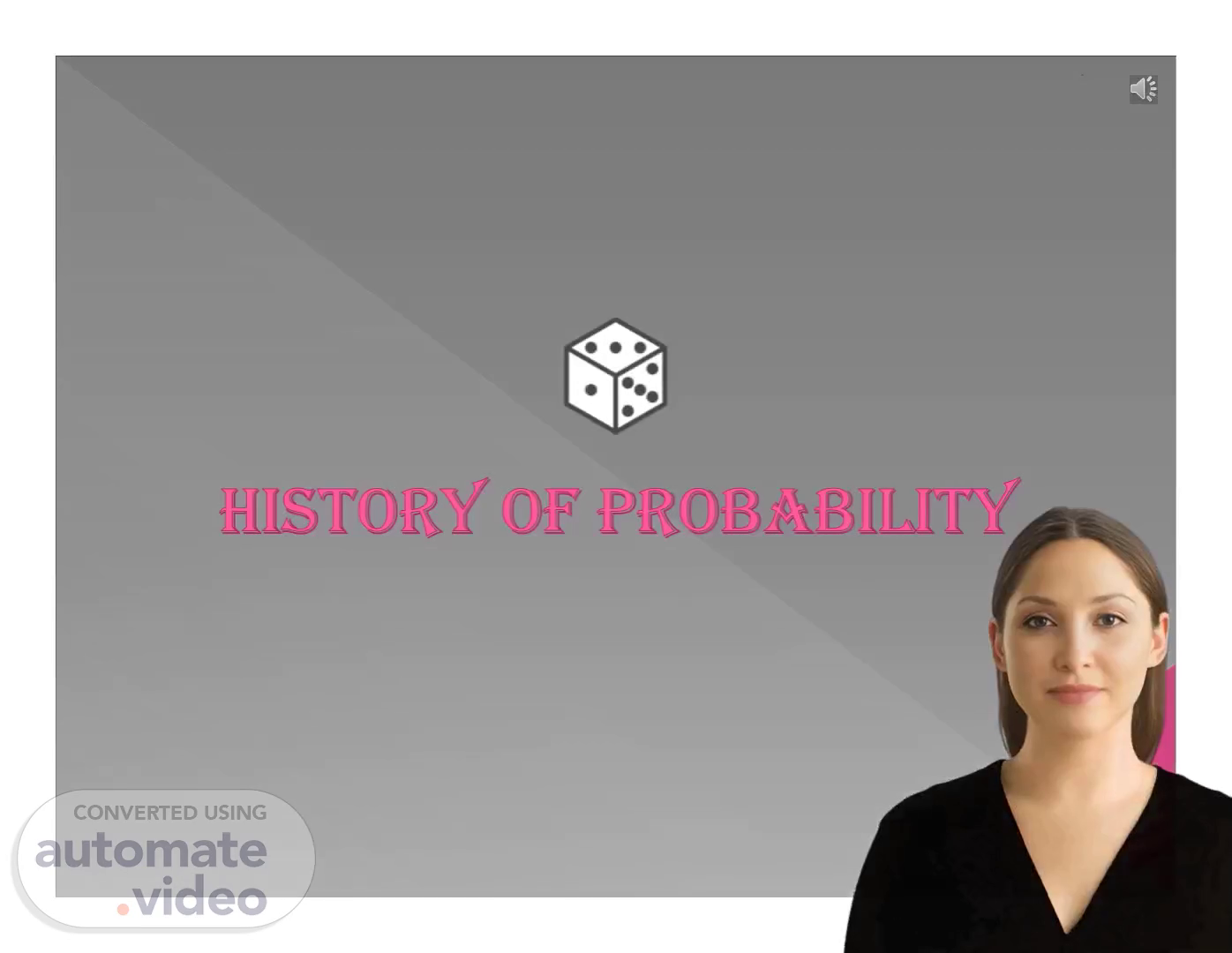
Microsoft PowerPoint - MS
Scene 1 (0s)
[Virtual Presenter] Welcome everyone! Today I'll be discussing the history and application of probability and statistics, which have been shaped by mathematics and its major contributions. I'll be exploring how they have evolved over time, and how they are used now in multiple fields. Let's get started with the slides that I am going to present..
Scene 2 (23s)
[Audio] Probability and statistics are branches of mathematics examining laws related to random events. The study of probability started in the 17th century, focusing on gambling and insurance, and is now pervasive in many social and natural sciences. Statistics dates back to ancient census counts and has developed into an effective means of interpreting and grasping numerical data. Probability theory and statistics are utilized to supply specialized info on topics such as conditional probability, probability density functions, likelihood, and geometric distributions. Major breakthroughs in probability and statistics have been crucial in forming our current understanding of the world..
Scene 3 (1m 11s)
[Audio] Probability and statistics have been widely utilized in diverse areas such as data analysis, medical research and insurance. These potent tools have revolutionized the way we interpret the world. From forecasting the outcome of games of chance to recognizing concealed patterns in data, probability has a double purpose: displaying the chance of certain assumptions provided the proof for them, and demonstrating the behavior of random processes such as the spinning of dice or the flipping of coins. The inquiry of the former is founded on the law of evidence, whereas the latter can be traced back to the work of mathematicians Cardano, Pascal, Fermat and Christiaan Huygens in the 16th and 17th century. Statistics, on the other hand, enables us to draw conclusions from data, letting us gain knowledge of the concealed distributions of data, aiding us to take action and comprehend the universe better..
Scene 4 (2m 11s)
[Audio] Probability can be traced back to ancient civilisations of Egypt and China, who used dice and other random objects in games of chance. The Greeks also had an interest in probability, applying it to the prediction of outcomes of athletic contests and other events. In the 16th century, probability took on a more scientific shape with the development of the theory of gambling by Italian mathematician Gerolamo Cardano. Since then, mathematicians have kept advancing the field of probability and statistics, resulting in meaningful advances and discoveries..
Scene 5 (2m 50s)
[Audio] During the 17th and 18th centuries, Blaise Pascal and Christiaan Huygens were instrumental in the development of probability through their examination of games of chance. Their contributions to the mathematical theory of probability served as the foundation for the later success of the fields of probability and statistics..
Scene 6 (3m 10s)
[Audio] Probability theory was adopted extensively in the 19th century, with mathematicians such as Pierre-Simon Laplace and Carl Friedrich Gauss making key contributions to its development. This theory has been used in a variety of fields, including physics, biology and economics, and has become indispensably important when examining the world around us..
Scene 7 (3m 35s)
[Audio] Probability theory expanded significantly throughout the 20th century, leading to the development of new methods and algorithms to govern and measure complex systems. This growth enabled a multitude of new applications for modern society, from finance and insurance to gaming and sports. Probability theory has become a crucial tool in the field of artificial intelligence (AI). It is used to power algorithms that facilitate self-driving cars and personalized medicine, allowing AI systems to make decisions and predictions with greater precision..
Scene 8 (4m 13s)
[Audio] Probability is poised to become a major player in the coming years. Advances in technology have highlighted its importance in artificial intelligence, machine learning, and quantum computing. Additionally, developments in genetics have brought with them new possibilities for probability and predictive analytics, opening up the door for more accurate predictions and personalized medical treatments. It is clear that probability is likely to bring about a revolution in our way of living and provide us with exciting new opportunities..
Scene 9 (4m 48s)
[Audio] Probability has come a long way from being a form of gambling and is now a highly valuable tool in modern society. It is used to predict the weather, understand the risk of stock market investments, and make sense of our environment, enabling us to make informed decisions. The study of probability has been heavily influenced by mathematicians whose work has had a lasting and significant impact on our lives, and will continue to shape our future..
Scene 10 (5m 18s)
THANK VOU....... THANK VOU.......